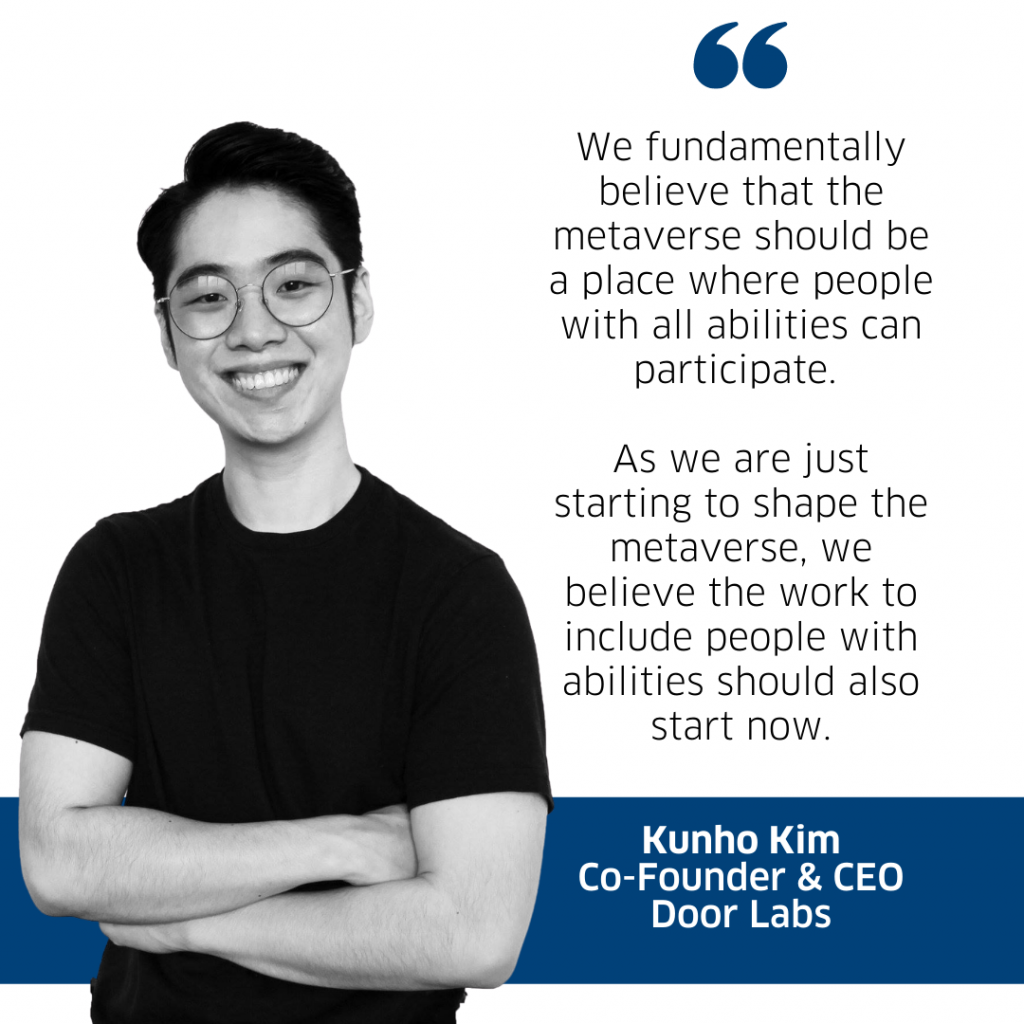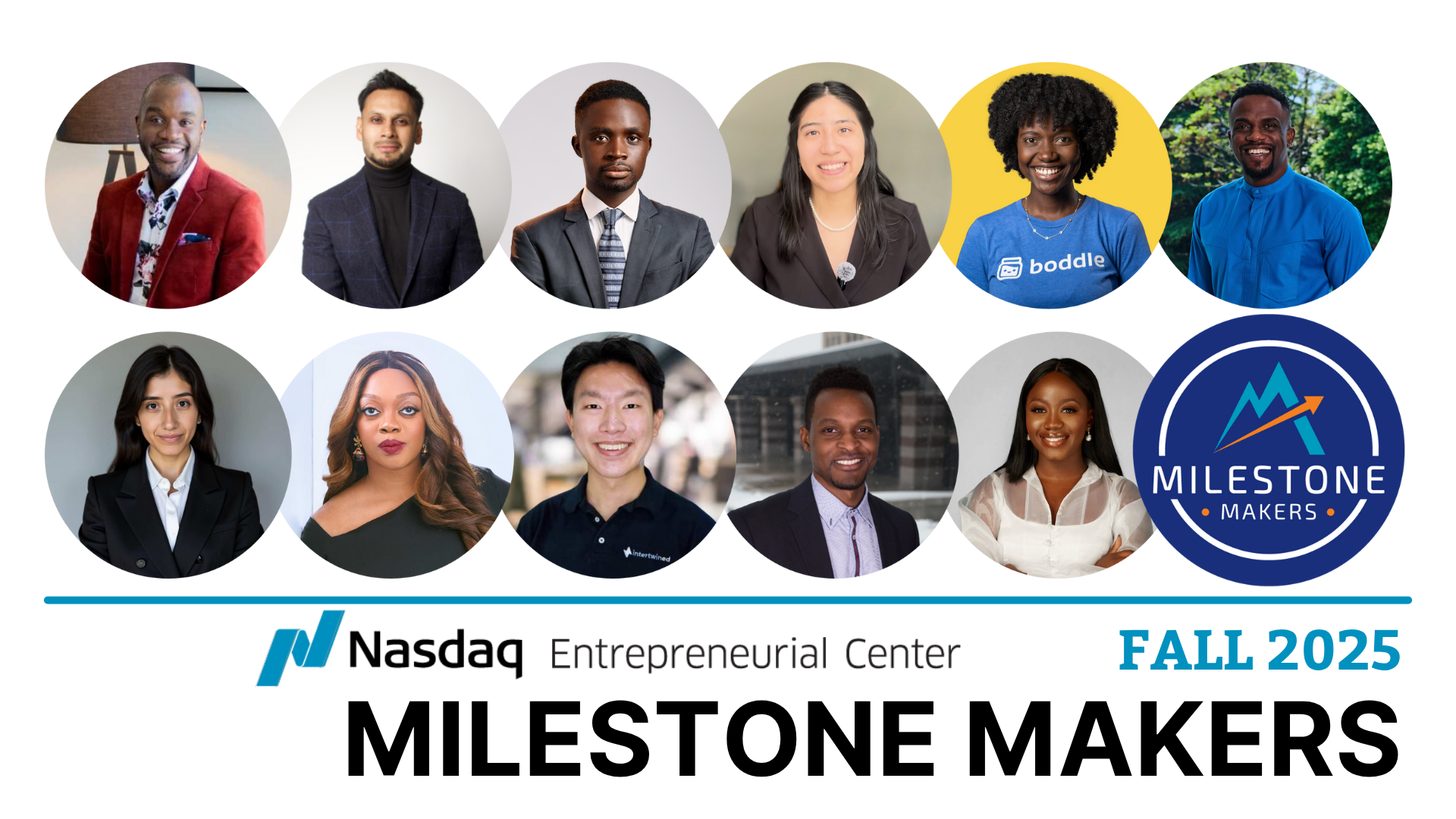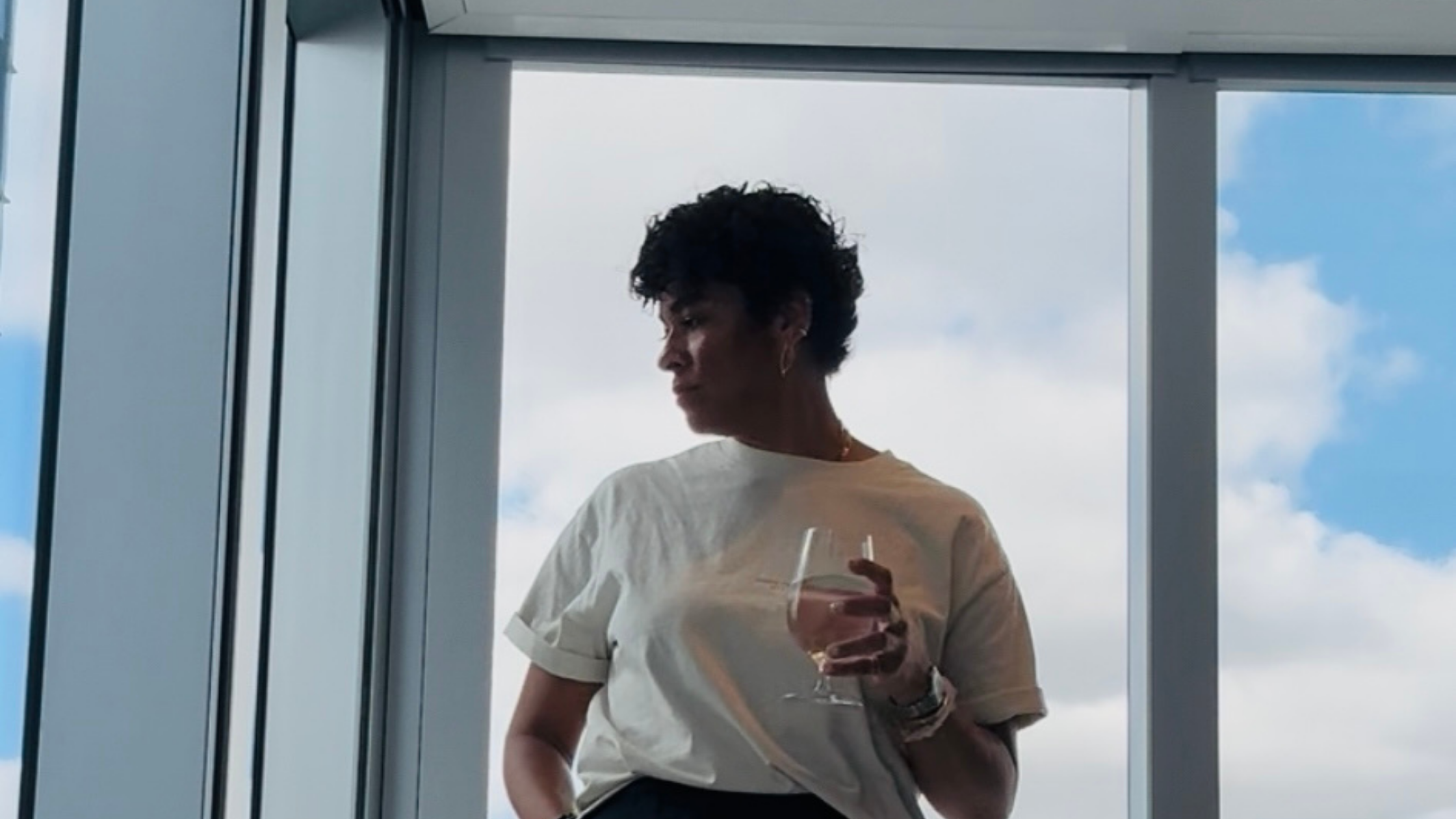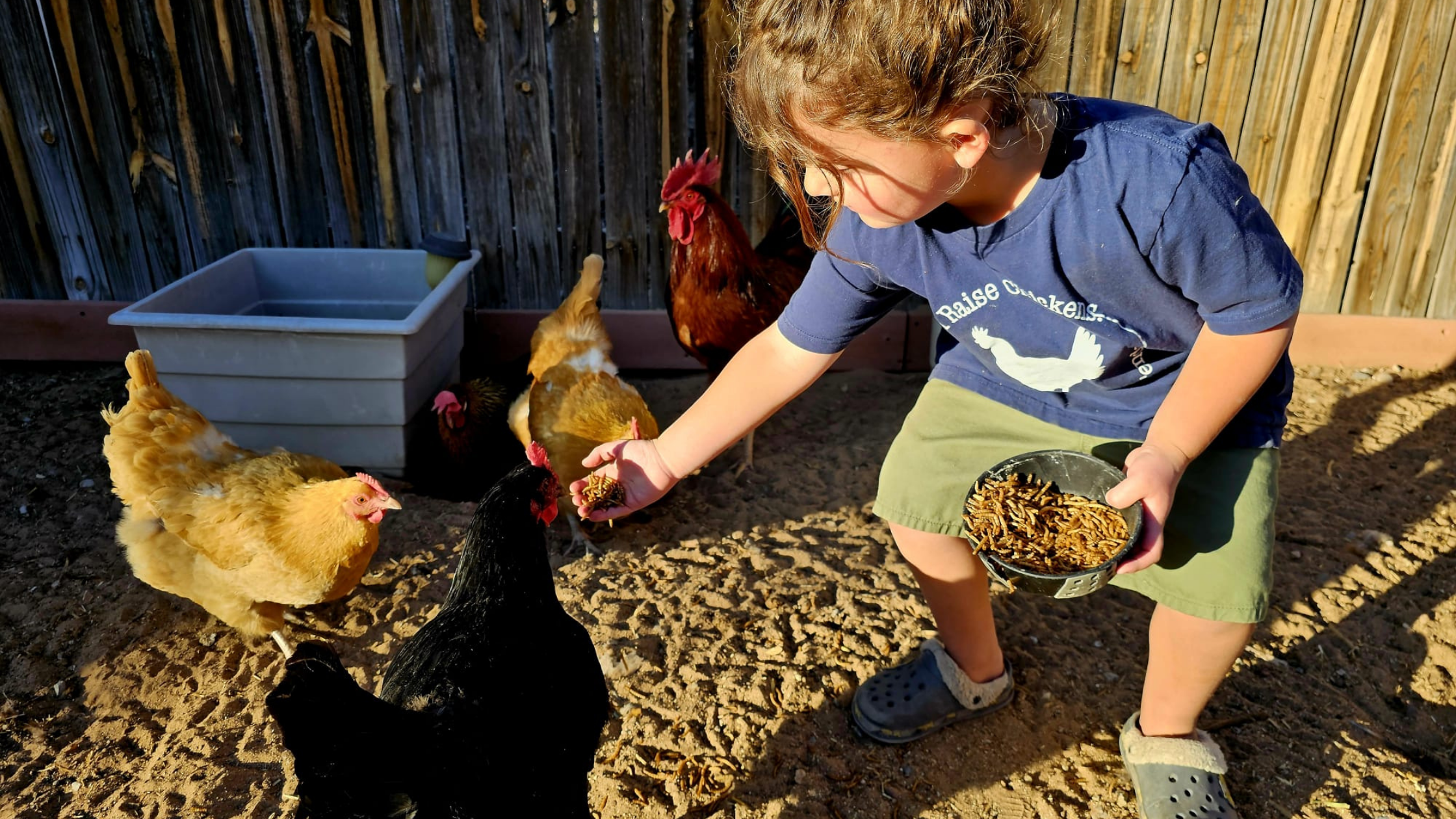After a skiing accident in 2010 left him paralyzed from the waist down, Kunho Kim, Co-founder & CEO of Door Labs, became a passionate disability advocate. Then, following the creation of one of the first blockchain conferences at Harvard University that included Ethereum Foundation researchers, Kunho and his co-founders started Door Labs, a disability-related non-fungible token project, with the goal to create the world’s only inclusive metaverse.
In addition to Door Labs, Kunho has written a wheelchair-accessible tour guidebook and won several international film awards for his disability travel video series. He also helped to create South Korea’s first interactive wheelchair-accessible metro map and is the first South Korean national to become a sport pilot in a wheelchair. He has spoken at events including World Blockchain Forum NYC, Sino-US Seminar on Blockchain Development, and Fintech Innovation at Southern University of Science & Technology, China. Kunho also holds a South Korean patent for randomized NFT issuance process after a payment.
What does “entrepreneurship” mean to you?
Kunho Kim: Entrepreneurship means to build to solve what you are frustrated about.
 How did your company come to be?
How did your company come to be?
KK: I founded one of the first blockchain conferences at Harvard and MIT. I also worked with the Ethereum Foundation. Being deep in the blockchain and cryptocurrency industry, I have always wanted to see how I could use the technology to better the lives of people like me who are disabled and in wheelchairs.
Right before COVID-19, my first start-up, which had an ambition to allow people easily use cryptocurrencies to buy a cup of coffee at any retail store, failed. While I was taking time off, I brainstormed about an idea to raise awareness about people with disabilities with non-fungible tokens with Thomas Hsueh, a Harvard friend who I met during EthDenver Conference in 2020, which is one of the biggest annual Ethereum conferences around the world.
I was injured 11 years ago in a skiing accident and since then I have been in a wheelchair. From then on, wheelchair accessibility and advocating for people with disabilities like myself have been a passion of mine. I completed a cross-continental road-trip with friends in college and authored a travel guidebook for people in wheelchairs. I founded a social enterprise in South Korea that made Seoul’s first wheelchair accessible metro map.
Like this, using the cutting edge technology to better the lives of people with disabilities has been a passion of mine. So, it was natural for me to start Door Labs, which created Wheel Cards, the world’s first wheelchair and disability-related NFT collectibles project.
How has your business changed in response to the COVID-19 pandemic?
KK: The entire project and startup began because of the COVID-19 pandemic. Without the pandemic, my team and I would not have been able to think about raising awareness about people with disabilities virtually.
What is your proudest and darkest moment so far? Share a key high and a key low from your journey if you can.
KK: My proudest moment is when I created a scholarship fund specifically for students with disabilities at Fulbright University Vietnam. I spent much of my adolescence in Vietnam. I got injured in Montana while I was in an exchange student program from Vietnam. Right after the injury, I went back to Vietnam. The adjustment was challenging, but it could only be possible from the community I grew up in. Our team decided to donate the proceeds from Wheel Cards NFT sales to Fulbright University Vietnam and pledge to make the university’s first scholarship fund specifically for students with disabilities.
My darkest moment is when my first startup failed. I embarked on a journey to create my first startup right after college. We wanted to allow people to use cryptocurrencies to buy anything in real life at any retail store. It was a very ambitious dream that required many years of hard work. My friends trusted I could make the right judgements to make our vision come true. However, I was not able to make that happen. It was particularly hard that I let down on the people who trusted me.
How is your company changing the landscape?
KK: Currently, we are the only company that works to make an inclusive metaverse. We fundamentally believe that the metaverse should be a place where people with all abilities can participate. As we are just starting to shape the metaverse, we believe the work to include people with abilities should also start now.
What advice/credo do you live by as you grow the business / what is your professional and personal mission statement?
KK: The quote that I try to live by the most is “Do unto others as you would have them do unto you” from Gospel of Matthew (7:12).
Where do you find inspiration when faced with challenges?
KK: I try to find inspiration in history. I love reading history books and documentaries. I believe there are many answers that can be found from the lessons of others.
What does “success” look like for you? What do you think will help you achieve it?
KK: For me, success looks like when I could continue doing what I truly love to do. Constantly questioning and assessing whether I love what I am doing helps me to achieve my goals. Oftentimes, we forget to ask the most fundamental questions. I believe knowing yourself helps where you go and ultimately help you to succeed.
Has personal or professional “success” changed for you since the COVID-19 pandemic?
KK: Ever since COVID-19, my perspective about personal and professional “success” changed. I had more time to think about what I really want in life and what satisfied myself. This is why I could start Door Labs and create fun NFTs and play-to-earn paralympic games.
What’s it like to work alone or with your partners? What advice do you have for fellow entrepreneurs about building and leading teams?
KK: I am extremely fortunate to co-found the startup with my friends such as Thomas Hsueh and Byungchan Lee. It is always comforting to know that you have a group of supporters who can help each other. The best advice I could give is to find loyal friends and coworkers who you can count on even during bad times. Then you will be setting yourself and your team to create an empire. It takes a village to raise a child and your child is your startup.
Many entrepreneurs continue to perfect their daily routines to support their work and greater vision; would you mind sharing your morning routine or a regular ritual that grounds your work each day? How has it changed in recent months?
KK: I try to meditate as much as I can.
What keeps you motivated during this time?
KK: Making a community to support people with disabilities really excites me. Moreover, I believe making an inclusive metaverse is like creating an inclusive nation on top of the internet. The fact that I get to participate in creating such a space really keeps me awake every single second.
What kind of an entrepreneur do you want to be known as, as in, what do you want your legacy to be?
KK: I want to be known as an entrepreneur who pioneered creating the internet more equitably. Moreover, I want to be known to use technologies to better the lives of people with disabilities.
Have you experienced mentorship in your career? Do you feel it was easily available to you?
KK: It has been particularly tough because there are not many entrepreneurs who have worked on the accessibility and inclusion side. However, I have been fortunate enough to get help from many people such as Jiho Zirlin from Axie Infinity, Ken Ng & Sina Habibian from Ethereum Foundation, and countless others.
Who are the people who have mentored or influenced you in your life or career? How has their influence changed the trajectory of your entrepreneurial journey?
KK: I have crossed many individuals who helped me throughout the process. Last year, I won a runner-up position Ryan Serhant and Casey Neistat’s competition. Meeting Ryan and learning about how he became where he is now really inspired me to continuously work on things I truly love.
Do you have someone you’d like to nominate to be profiled in our Faces of Entrepreneurship series? Please let us know by emailing media@thecenter.nasdaq.org or submit your nomination using this form.





